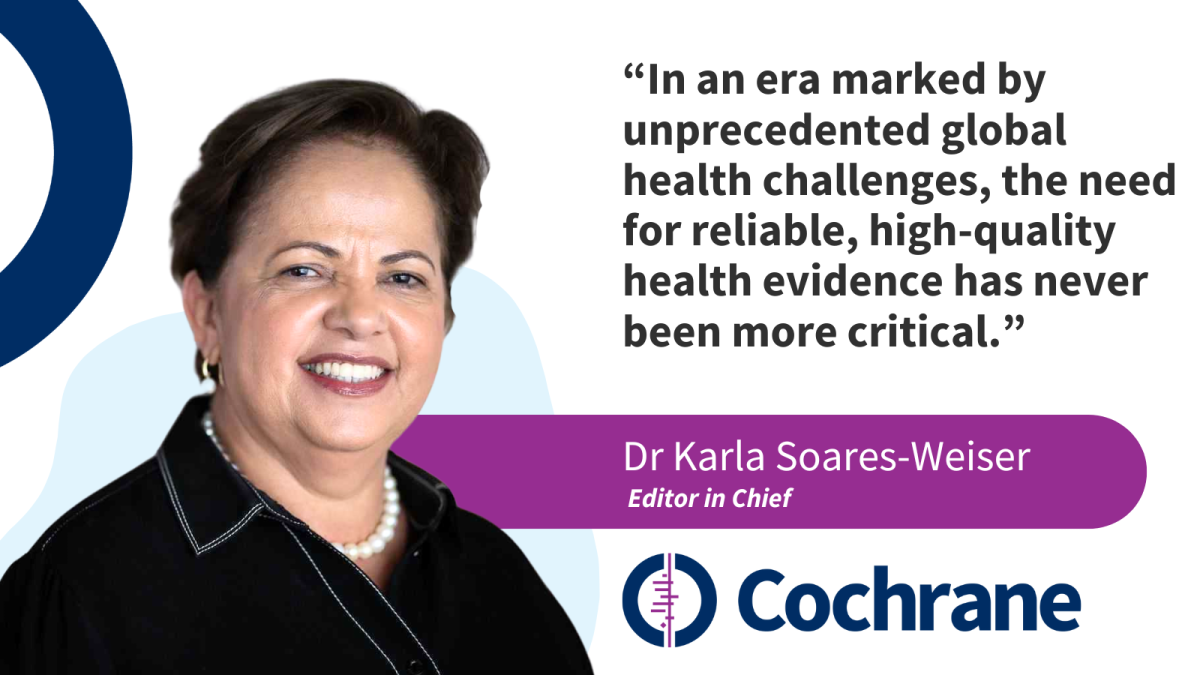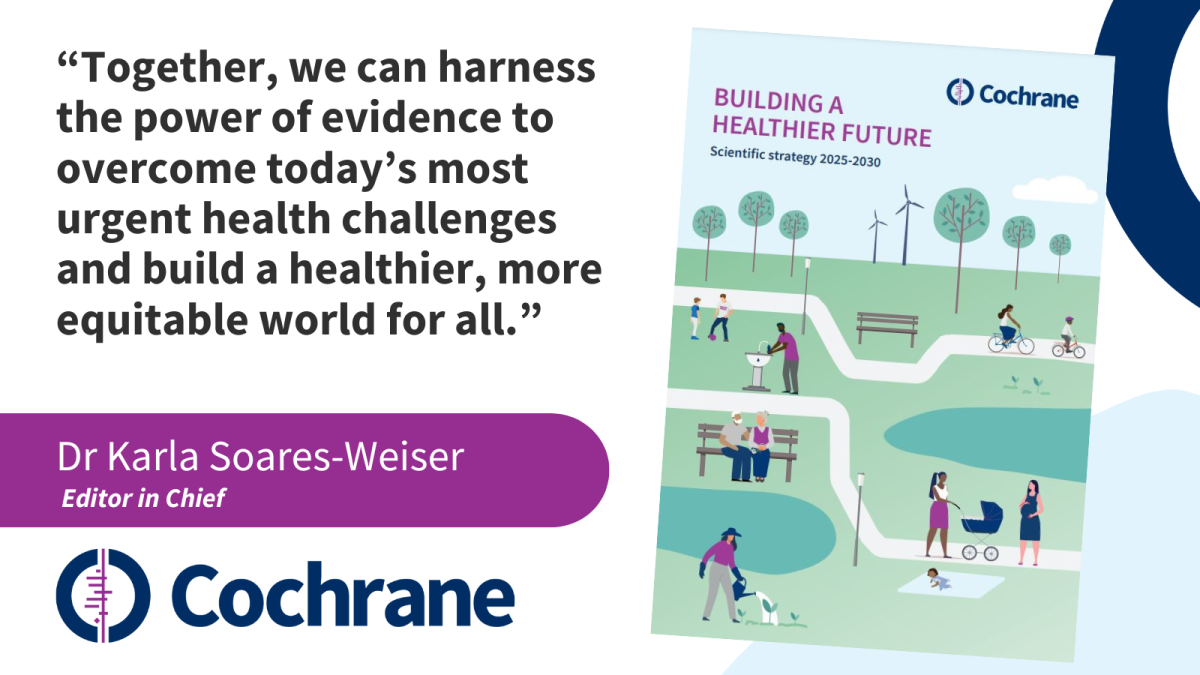
The Cochrane Collaboration is proud to announce our new scientific strategy, focusing on tackling the most pressing global health issues driving inequity.
Over the past 30 years, we have published over 9,000 systematic reviews and developed a reputation as one of the most trusted sources of health evidence. Our reviews set standards and improve lives, from offering premature babies the best start in life to preventing falls among older people. We now want to go further to address the devastating health inequalities that still persist worldwide.
The new scientific strategy will contribute to the United Nations Sustainable Development Goals (SDGs), which aim to bring about a more sustainable, equitable, and prosperous future by 2030. We will collaborate with partners both within and beyond the Cochrane community to tackle inequity across the world, building a healthier future for everyone and helping to achieve the SDGs.
Our strategy focuses on four key research priorities to address the most pressing health challenges, underpinned by a foundation of four commitments. Our research priorities are:
-
Maternal, newborn and child health: we will improve the health and wellbeing of mothers and children worldwide and tackle the vast health equity gap between different populations.
-
Multiple chronic conditions: we will improve the lives of people living with multiple chronic conditions, identifying effective approaches to provide person-centred care and prevent further illness.
-
Infectious diseases: we will equip people across the world with the evidence they need to protect themselves against both existing and emerging threats.
-
Climate change and sustainability: We will improve our understanding of the complex relationships between climate change and human health, helping people to better cope with the health impacts of climate change.
Our commitments are:
-
Innovate in methods: we will build on our world-leading expertise developing innovative research methods, including harnessing the power of artificial intelligence (AI).
-
Promote health equity: we will be guided in everything we do by our desire to promote health equity, shaping the questions we address and how we share our findings.
-
Collaborate and involve: we will collaborate with global partners, national agencies and local healthcare consumers to drive transformative change.
-
Champion research integrity: we will maintain and strengthen our leadership in research integrity so that we continue to produce evidence that everyone can trust.

“In an era marked by unprecedented global health challenges, the need for reliable, high-quality health evidence has never been more critical,” writes Dr Karla Soares-Weiser, Cochrane’s Editor in Chief. “From the rise of infectious diseases such as polio and malaria due to war and poverty to the profound health impacts of climate change, our world faces a myriad of crises that demand informed, evidence-based responses. Yet, despite significant advancements in health research, a gap remains in making trusted health evidence accessible and useable for those on the frontlines — especially in low- and middle-income countries with limited resources.
“Global health inequalities continue to mean that millions suffer and die from preventable health risks daily. Without dependable evidence, healthcare professionals, patients, and policy makers struggle to make informed decisions that could alleviate these hardships and save lives. At Cochrane, we understand this urgency and the indispensable role of robust evidence in bridging health disparities across the globe.
“Our scientific strategy for 2025-2030 is a bold response to this challenge. By streamlining our processes and focusing on the most pressing global health issues, we aim to bridge the current evidence gap. Our priorities reflect today’s realities, centring on maternal, newborn, and child health; multiple chronic conditions; infectious diseases and pandemics; and the health effects of climate change. These focus areas are not only a response to the current health landscape but also a proactive approach to shaping a future where health decisions are consistently informed by the best possible evidence.

“Cochrane has dedicated over three decades to improving global health and life expectancy through trusted evidence. We have systematically reviewed and analysed health research, using innovative statistical methods to ensure findings that are both robust and reliable. We are now keen to collaborate with partners and attract funders to join us on this vital mission. Together, we can harness the power of evidence to overcome today’s most urgent health challenges and build a healthier, more equitable world for all.”
